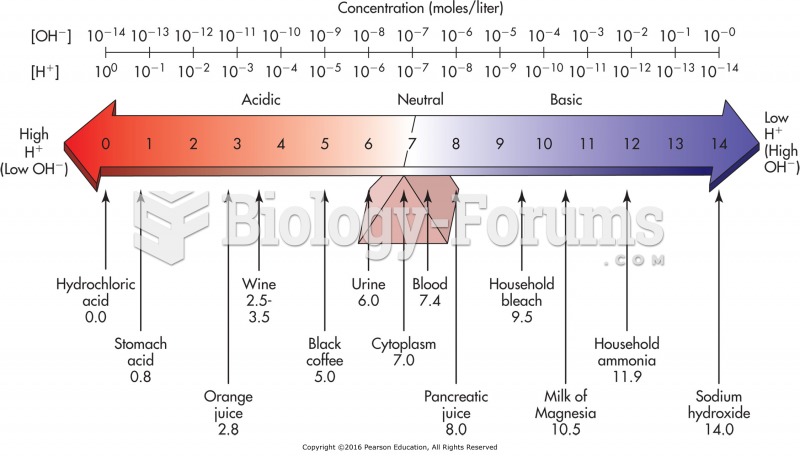|
|
|
Blood is approximately twice as thick as water because of the cells and other components found in it.
This year, an estimated 1.4 million Americans will have a new or recurrent heart attack.
Barbituric acid, the base material of barbiturates, was first synthesized in 1863 by Adolph von Bayer. His company later went on to synthesize aspirin for the first time, and Bayer aspirin is still a popular brand today.
Always store hazardous household chemicals in their original containers out of reach of children. These include bleach, paint, strippers and products containing turpentine, garden chemicals, oven cleaners, fondue fuels, nail polish, and nail polish remover.
Asthma is the most common chronic childhood disease in the world. Most children who develop asthma have symptoms before they are 5 years old.
 Common skin signs are often evidence of an illness or disorder. A wheal is a localized, evanescent ...
Common skin signs are often evidence of an illness or disorder. A wheal is a localized, evanescent ...
 The types of skeletal movement. (A) Flexion and extension of left forearm. (B) Flexion and extension ...
The types of skeletal movement. (A) Flexion and extension of left forearm. (B) Flexion and extension ...





